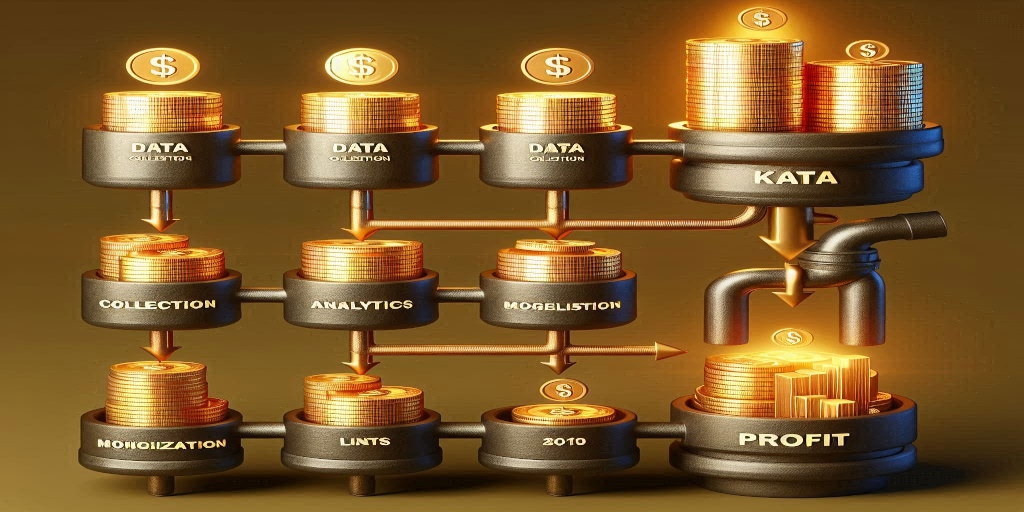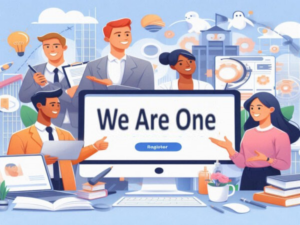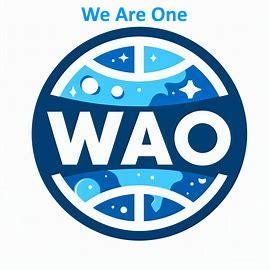We are producers of data
In today’s digital world, we are all producers of data, whether we like it or not.
In the digital economy, the production of data is our capital. And we give this data voluntarily, even for free, to those who use it and turn it into money. The tech companies. But what do we get out of it?
Paradoxically, we users rarely think about the fact that we “produce” data in the first place through our entries in search engines, social media and online shops. Without our work, it would not exist. We virtually create the basis for the added value of large corporations.
We give the companies of the “new economy” a lot of power by our data: social, political and financial power.
The question that arises is whether the consideration for the use of our data is appropriate.
As our data can create great value, we should think about forming an interest group for data producers. Similar to a union or cooperative, we could band together to represent our interests and demand a fair price for the use of our data. A good organization could even allow us to market our data ourselves and thus retain control over it.

A large internet community could use their collected data. We could also analyze surveys to gain useful insights into human preferences and behavior, for example discovering new trends.
This information could then be anonymized and sold to research companies, advertisers or other organizations interested in such data. Such data can also be useful for politics – of course especially for a community that wants to intervene in politics itself.
First through surveys, later through its own app, the community could, for example, collect movement data and data on shopping behavior and thus earn money for all members. There are different possibilities:
- Sale to market research companies: The community can sell its aggregated and anonymized movement and purchasing data to market research companies. These companies are constantly looking for insights into consumer behavior to improve their products and services. The community can therefore create a source of income by sharing this valuable data with companies.
- Targeted advertising and partnerships: Based on the data collected, the community can offer targeted advertising. Companies interested in specific demographics or behaviors may be willing to pay for advertising or community partnerships. For example, retailers might be interested in marketing their products to the community based on their shopping habits. If every member of the community can choose whether and which advertising is shown to them, resistance to such efforts should be low. It can only be in the members’ interest to receive relevant information instead of intrusive advertising banners.
- Development of own products and services: By analyzing the collected data, the community could identify trends and needs that make it possible to develop its own products or services. For example, based on the movement data, the community could develop an app or platform tailored to the needs of users. These products could then be resold or monetized through subscriptions.
- Data Licensing to Government Agencies or Cities: Government agencies and cities are often interested in movement data to improve transportation planning and urban development. The community could therefore license its data to such organizations to help improve infrastructure and urban quality of life.
Protecting privacy and complying with data protection laws should be a top priority. Here are some points to consider:
- The community should ensure that all data is anonymized and aggregated to protect user privacy.
- It is important that the community communicates transparently with users about how their data is used and what controls they have over their own data.
- It would be optimal if the members themselves developed a “statute” on this topic. In the settings, each member should have the opportunity to determine how much they want to reveal about themselves. This could go so far that members enter data about pulse, blood sugar, etc. into community databases via their smartwatch. Not only to make monetary profit, but doctors and scientists could also draw conclusions that benefit everyone.
- If it is clear to all members that the profit from the system flows back to everyone, there should be little standing in the way of active participation.
Through careful consideration and responsible use of the data collected, a large Internet community can make money from data in an ethical and profitable way and help politicians make the right decisions.
Moreover, a well-developed WeAreOne website could seriously compete with Facebook & Co. and let the profits they make from us flow into our pockets.
We would develop the algorithms behind the system ourselves and, unlike others, show them to users.





